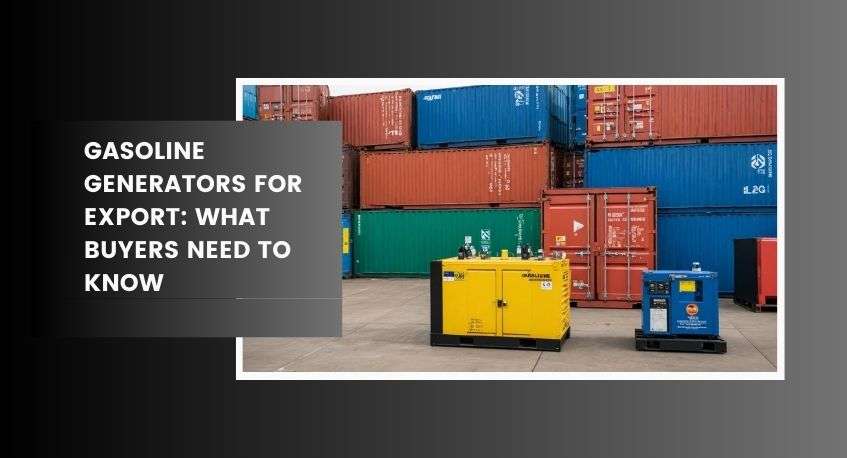
These days, when everything goes so fast, we need electricity for different stages of our lives. But we can experience power outages and find ourselves in the dark unexpectedly. Gasoline generators come in handy there. These reliable machines supply temporary power as backup, without which our essential appliances and equipment cannot function during an emergency or while outdoors.
Internal combustion engines are the basis of gasoline generators or petrol generators. The engine is a gasoline-fuel-run engine, and the alternator produces electrical power. When the generator turns on, the engine ignites the gasoline, and the piston goes up and down, creating mechanical energy. The alternator converts the power to an electric current. This is expressed in watts, which is the capacity of the generator.
People often choose gasoline generators because they have many benefits. First, it is movable and flexible, which means it can be used for many things. A gasoline generator can deliver the power you are looking for, whether you need it for backup power at home, need to power tools at a construction site, or engage in outdoor recreational activities. Furthermore, gasoline generators are more affordable than other generators, so they're cheaper and can be used by anyone. Additionally, they are easy to use, and fuel is available, so refilling them is easy.
Gasoline generators can be used in many different settings. During power outages, they are our backup power sources for homes, keeping the fridge, lights, and medical equipment working. Many people also use them on building sites and in remote areas where plugging in isn't possible.
As an outdoor enthusiast, camper, or RV owner, you use gasoline generators to run your devices and appliances out in the wild. In addition, many businesses employ gasoline generators as a temporary power solution or backup power for critical operations during or as a byproduct of events.
There are many different types of gasoline generators available that are made for different purposes. The most common types include:
First and foremost, you need to understand your power needs. Find out if we will have the generator run the whole building or just critical equipment during outages. Using experts to calculate peak demand will allow you to choose a generator that matches your minimum and maximum electric needs.
Depending on cost availability and convenience, you can choose a diesel, natural gas, or propane generator. Diesel generators can provide on-site fuel, but accessibility and on-site facility requirements may dictate using natural gas or propane for homes and businesses.
Generator reliability depends on proper generator maintenance services. Since we do not have any control over when a power outage occurs, it helps us find a good service provider for regular upkeep to avoid the shock of an unexpected failure. Maintenance neglect, inability to anticipate repair, and downtime can be extremely costly.
A place where the generator will be installed either indoors or outdoors. Space is necessary, as are ventilation and proximity to the fuel supply and electrical systems. In addition, accessibility for maintenance and repairs should be taken into account.
Determine how long each manufacturer offers a warranty and its coverage. Standard warranties tend to be up to five or even one year, and you can upgrade. However, understanding warranty terms gives you peace of mind and provides you with expectations when the maintenance costs come.
Read Related: How Do I Buy Wholesale Generators Directly From The Manufacturer
Considering the abovementioned factors, you can buy gasoline generators according to your operating requirements. By critically examining power requirements, fuel options, installation requirements, warranty terms, and proposals for generator maintenance services or plans, you can choose continuous power supply where the need is imperative.